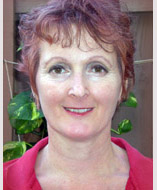|
By Sara Appel-Lennon
 LA JOLLA, California--Have you ever wished you could talk to your favorite author? Now is your opportunity, because the San Diego Jewish Book Fair runs from November 1 through November 12 at the Lawrence Family Jewish Community Center, Jacobs Family Campus, located at 4126 Executive Drive, La Jolla, California. LA JOLLA, California--Have you ever wished you could talk to your favorite author? Now is your opportunity, because the San Diego Jewish Book Fair runs from November 1 through November 12 at the Lawrence Family Jewish Community Center, Jacobs Family Campus, located at 4126 Executive Drive, La Jolla, California.
A detailed listing of visiting authors, book titles, and dates may be found at www.lfjcc.org/sdjbf
Authors will be present to discuss their books, sign them, and answer questions. For those on a tight budget, there are many free events this year.
Many San Diego Jewish World writers have published book reviews prior to the author’s appearance at the Book Fair. I wrote a review of Francine Prose’s book, Anne Frank the Book, The Life, The After Life.
Two years ago when I went to my first Jewish Book Fair, I was intrigued by the title of a particular book, Yearnings, Embracing the Sacred Messiness of Life by Rabbi Irwin Kula. It seemed like an oxymoron. How could messiness be considered sacred? Yet this was exactly Kula’s point: Life is messy at times.
I attended his lecture anticipating what he would say. Kula mentioned the bedroom disarray of his younger daughter, Talia. Kula and his wife, Dana noticed her bedroom stayed messy despite numerous promptings and pleas to clean it. Seeing his wife in despair, Kula shifted his own perspective by viewing the cluttered chaos as “overflowing just like Talia.” Their anger turned to understanding when they looked at the
Go to top of next column
|
|
various items left out and recalled fond memories behind those items. Talia shared that she did not view her room as a mess.
Attending Kula’s lecture and reading parts of his book challenged my thinking. Attending the Jewish Book Fair helped me to learn more about myself, my Jewish values, and culture.
Kula realized that perhaps he also could lean in to his messes instead of cleaning them up so quickly. Perhaps our messes or mistakes provide us with teachable moments and reminders of our imperfection because we’re human.
Having struggled with accumulated clutter over the years, I enjoyed Kula’s analogy. It reminded me of the day when I was determined to clean my closet from top to bottom. I started noticing the various items of clothing and quickly lost interest in closet cleaning. I sat down to write a poem about the disarray and my many clothing styles instead. Writing the poem gave me more joy and allowed me creative expression rather than cleaning my closet. I discovered that writing was better use of my time in that moment. I still have yet to clean my closet but that’s OK. I’ll get a round to it. When I do, it will be a little bit at a time instead of all at once.
Messiness happens by participating in life. Kula said that if you’ve never had dirty dishes in your sink, you’ve never enjoyed a home cooked meal. I’ve learned to clean as I go so the mess isn’t overwhelming. If someone else cooks for me, I can feel grateful for the pleasing meal rather than resentful about the clean-up afterward.
Furthermore Judaism focuses on what we do. Kula wrote about how uncertainty is inevitable in the face of decisions. Kula said that any action results either in recommitting or changing directions. “Being paralyzed by indecision is not an option.”
Appel-Lennon is a San Diego-based freelance writer. Her email: appels@jewishsightseeing.com
|

